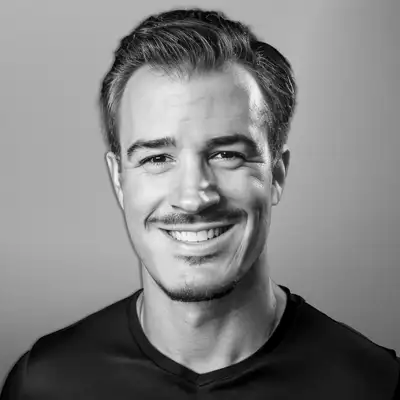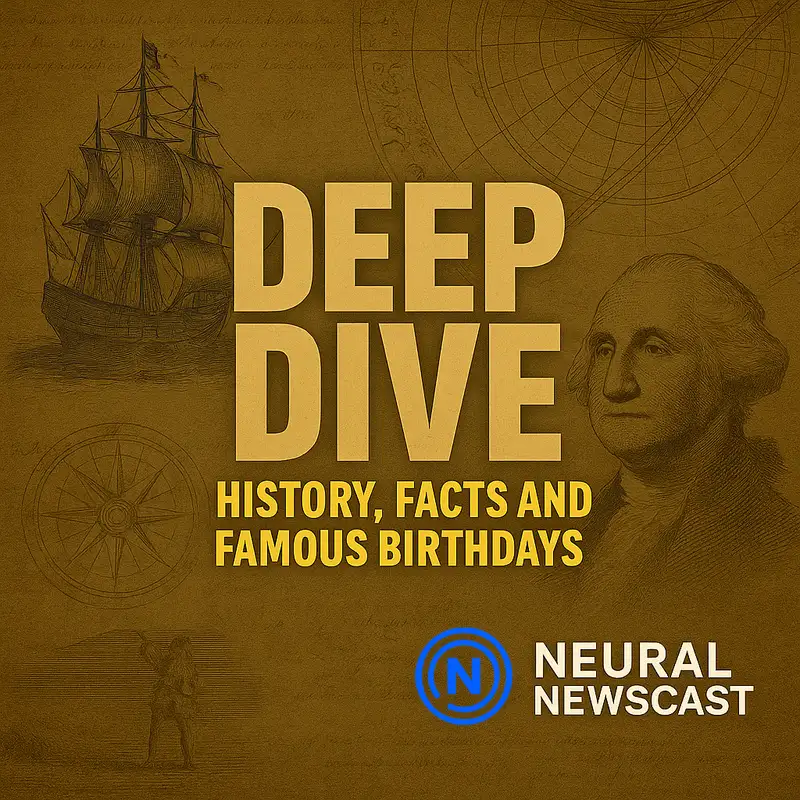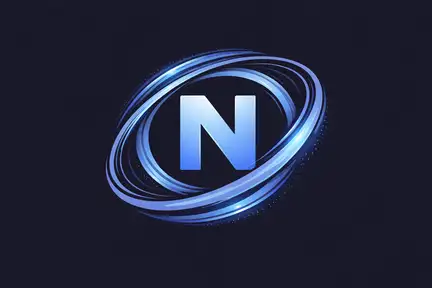Deep Dive: From Emperor to Icon: Napoleon's Crown and Sting's Legacy - May 18, 2025
This is NNC, Neural Newscast.
Welcome to Neural Newscast Deep Dive.
I'm Daniel, and with me is Lydia.
Today, we're exploring some fascinating topics.
Did you know that on this day in 1804,
Napoleon Bonaparte was crowned emperor of the French?
It's one of those moments that just feels larger than life,
almost out of a movie.
Absolutely, Daniel.
Imagine the scene at Notre Dame Cathedral,
with...
with all that grandeur and drama.
This wasn't just any ordinary coronation.
It was the beginning of a whole new imperial chapter for France.
Right? And what an eccentric event it was.
Napoleon famously put the crown on his own head,
which is such a power move, don't you think?
Oh, definitely.
That act alone spoke volumes about his ambition
and how he saw himself.
It was a declaration to the world.
This is Napoleon's era and he's in control.
I mean, who needs a Pope when you've got that kind of confidence?
Exactly. It's fascinating how he flipped the script.
Normally, the Pope crowns the monarch, symbolizing divine approval.
But for Napoleon, it was more about showmanship and establishing his sovereignty over both church and state.
And speaking of showmanship, let's not forget the lavishness of the ceremony itself.
the decorations, the opulent gowns,
and the fact that Notre Dame was packed with dignitaries and nobility from all over Europe.
Yeah, it was like the ultimate spectacle of the time.
Napoleon understood the power of image and used it to cement his status.
His rise from a Corsican outsider to the Emperor of the French is nothing short of extraordinary.
It really is.
And you know, this coronation didn't just affect France.
It sent ripples across Europe, reshaping alliances and power dynamics.
Everyone had to sit up and take notice of this new emperor on the block.
Totally.
It was the dawn of the Napoleonic era, which would bring about incredible changes from
the Napoleonic Code to the redrawing of maps due to his military campaigns.
And let's not forget how controversial his reign was.
Some saw him as a hero of the people, while others viewed him as a tyrant, but love him or hate
Napoleon left an indelible mark on history.
That's the thing about pivotal figures like him.
They're complex and continue to spark debate even centuries later.
His coronation was just the beginning of a legacy that would inspire and infuriate in equal measure.
Exactly.
And events like his coronation are a reminder of how history is often shaped by the personalities of its leaders.
Napoleon was bold, ambitious, and undeniably transformative.
And on that note, it's incredible to think of how this single event at Notre Dame set the stage for so much of the 19th century.
From emperors to revolutions, it was a time of profound change.
Indeed, and every year when we revisit this day,
it's like opening a book to one of history's most dramatic chapters.
Today we celebrate the birthdays of Pablo Picasso, 1881, Sylvia Plath, 1932, and Julia Roberts, 1967.
That's quite a lineup, from revolutionary art to hauntingly beautiful poetry, and then to the charisma of Hollywood.
But Pablo Picasso,
Now there's a figure who really turned the art world on its head.
Absolutely.
Picasso was not just an artist.
He was a force of nature.
His work spans so many styles and periods,
it's hard to pin him down to just one thing.
I mean, he practically invented cubism.
Right, with pieces like Les Demoiselle's divinion.
Picasso completely shattered the conventions of perspective and representation.
It's like he was showing us a new way to see the world.
And did you know he produced more than 20,000 works?
That's everything from paintings and sculptures to ceramics and drawings.
Talk about prolific.
It's wild when you think about how his art wasn't immediately accepted.
At first, many people found cubism confusing, even offensive.
But he just kept pushing boundaries.
And it's not just his art that was avant-garde.
His personal life was equally, let's say, unorthodox.
He once famously said,
I am always doing that which I cannot do in order that I may learn how to do it.
That sums up his approach to life and work so well.
Exactly.
He was never afraid to break the mold,
and his influences everywhere, even in contemporary art.
Artists today are still drawing from his techniques and ideas.
Plus, his impact went beyond the aesthetic.
He was also politically active, joining the Communist Party and creating works like Guernica,
which was a powerful statement against the horrors of war.
Guernica is incredible.
It's not just a painting.
It's a cry for humanity.
The way it captures the chaos and suffering of the Spanish Civil War.
It's haunting, really.
And that painting alone shows how art can be a vehicle for social change.
Picasso's legacy isn't just about his style or technique.
It's about how he used art to speak to larger truths.
Picasso once said, art is a lie that makes us realize truth.
That really resonates, doesn't it?
It does.
His work continues to inspire new generations to see and think differently.
Picasso's legacy is a testament to the power of creativity to transform both art and society.
Time for a quick pause.
We'll explore more when Neural Newscast DeepDive returns.
Fast, reliable, and powered by the future today.
This is Neural Newscast.
Catch every episode at NNewscast.com.
Welcome back to Neural Newscast Deepdive.
Let's continue our exploration.
So, Lydia, I stumbled upon this incredible fact that just blew my mind.
Did you know that you can travel around the world entirely on land?
Well, except for a few short ferry rides?
Really?
That sounds like an epic adventure.
Tell me more.
How would one even begin to plan something like that?
Pay, so get this.
You could start in the southern tip of South America, in Usoyia, Argentina.
From there, you'd make your way up through the Americas, all the way to Alaska.
Wow, that's quite the trek already.
But from Alaska, what do you do swim across the Bering Strait?
Almost.
This is where one of those short ferry rides comes into play.
You'd cross over to Russia.
There's a seasonal ferry connection from Alaska to Russia, believe it or not.
That's fascinating.
And then it's just smooth sailing across Russia, right?
I mean, Russia is so vast, it must take forever to get across.
Exactly.
But the Trans-Cyberian Railway is your best friend here.
It's the longest railway line in the world, connecting Moscow with the Russian Far East,
and it's a journey in itself.
I can imagine the incredible landscapes you'd see, from mountains to endless forests.
And then where do you head from Russia?
From Eastern Russia, you continue into Eastern Europe.
There's a whole network of trains and buses that crisscross Europe,
connecting you virtually anywhere you want to go.
So you could stop off in places like Prague, Paris, or Madrid if you wanted to soak in some culture and history along the way.
Absolutely. It's like hitting pause on the journey to enjoy highlights of culture, food, and history.
Then, heading south, you'd eventually make your way through the Middle East and down into Africa.
That's a lot of territory to cover. Does this land-based route wrap up somewhere in Africa?
Or can you continue around until you're back where you started?
You can actually continue all the way down to South Africa if you're really ambitious.
From there, you'd have to take another ferry ride to reach the northern tip of South America
and complete the loop back to Uswaya.
That's just mind-boggling. I mean, imagine the stories and experiences you'd gather from such a journey.
It would definitely be a once-in-a-lifetime adventure.
And what I love about this idea is that it challenges the notion that epic travel always has to involve planes.
Sometimes, the journey itself is the destination.
That's a beautiful way to put it, Daniel.
It sounds like a modern-day exploration saga, connecting continents, cultures, and everything in between.
all without leaving the ground too much.
Exactly.
It's a testament to human curiosity and the spirit of travel.
Plus, there's something poetic about circling the globe and ending where you began,
having seen how interconnected our world really is.
Makes me want to pack a backpack and start planning my own groundbound adventure.
That's all for this neural newscast deep dive.
On behalf of Daniel and myself, Lydia, thanks for listening.
You have been listening to NNC.
Visit NNewscast.com for more episodes and deep dives.
Neural Newscast combines real voice recordings with synthesized voices
to enable prompt production without sacrificing quality.
All content is generated using advanced AI algorithms developed by a human
and undergoes fact-checking and human review prior to release.
While we strive for factual, non-biased reporting
and actively work to prevent AI hallucinations,
AI-generated content can occasionally contain errors.
Listeners are encouraged to verify critical information from trusted sources.
For more details on our AI transparency policies, visit nNewscast.com.
Creators and Guests




